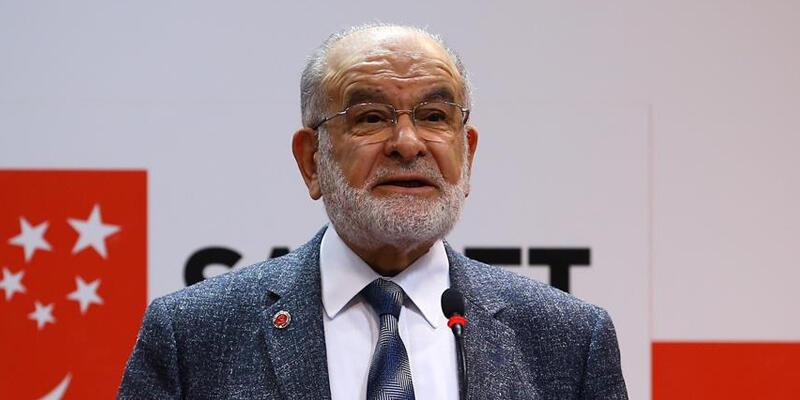RKI: Incidence slightly increased
The Robert Koch Institute reports 3088 new positive tests. That is 66 more than on Monday a week ago, when 3022 new infections were reported. The seven-day incidence increases to 64.7 from 64.2 the previous day. This value indicates how many people per 100,000 inhabitants have been infected with the coronavirus in the past seven days. Seven other people died as a result of the virus. This increases the number of reported deaths within 24 hours to 93,793. (04.10.2021)
Most days in lockdown: Melbourne at the top
Sad record: The city of Melbourne has spent a total of 246 days in lockdown mode since the beginning of the corona pandemic, like the Australian one Broadcasting station ABC reports. The city on the southeast coast of Australia will replace the previous record holder Buenos Aires. The state of Victoria has been in a strict lockdown for the sixth time in almost two months and is expected to last for several weeks. After all, since last week the residents have been allowed to move 15 instead of the previous ten kilometers from their place of residence, several non-contact outdoor sports are also allowed again.
Australia had a long time pursues a zero-covid strategy – with the spread of the aggressive delta variant, the country is now primarily focusing on achieving the highest possible vaccination rate. (04.10.2021)
Air New Zealand will only allow long-haul flights from February Vaccinated on board
The New Zealand airline Air New Zealand will only carry fully vaccinated passengers on its international routes from February 1, 2022. “This is the new reality of international travel. Many countries do not allow unvaccinated people to enter anyway,” writes Air New Zealand boss Greg Foran in a statement. New Zealand would like to reopen its borders, which have been closed since March 2020, at the beginning of next year.
Other US airlines have obliged their employees to be vaccinated against the corona virus. American Airlines, Alaska Airlines and Jet Blue determined this at the weekend. One reason for this decision is government pressure: US President Joe Biden decreed that from December 8th, only companies with vaccinated employees can get government contracts. Several airlines assume that they fall under this rule. United Airlines had previously prescribed corona vaccinations for all employees.
In Germany, however, Lufthansa board member Detlef Kayser has Bild am Sonntag again pleaded for compulsory vaccination for its own flight personnel. “As an airline that operates worldwide, we advocate mandatory vaccination for our crews and also need a way to record vaccination data,” said Kayser. In Germany there is no legal obligation to be vaccinated against the coronavirus, which is why the employer cannot force its employees to do so. (03.10.2021)
Vaccination protection in Israel should only be recognized for six months
While the third injection in Germany is so far only intended for people with a particularly high risk of a severe course, Israel is taking a different course. Due to the high number of infections, the government is calling on all citizens to get vaccinated again. Those who refuse are threatened with restrictions – but not quite as quickly as initially announced. From Sunday on, the so-called Green Pass, which facilitates access to public life, should only be valid for up to six months after the second vaccination. After this period, a third injection is necessary as a booster. Due to technical problems with the renewal of the Green Pass, the Ministry of Health announced on Sunday that the validity of the old pass would be extended by a few more days. Even those who have tested positive for Corona must receive a vaccination no later than six months afterwards. According to figures from the Ministry of Health, the new regulation could affect more than a million people. (03.10.2021)
German companies save 28 billion euros by eliminating business trips
Companies in Germany saved billions of dollars due to the elimination of business trips during the corona pandemic. This is the result of a study by the employer-related institute of the German economy, about which the Rheinische Post first reported.
In 2020, 17.2 billion euros were saved, in 2021 around 11.3 billion euros so far. In this invoice, the savings due to the absence of travel costs are already offset against the costs resulting from the waiver of business trips, such as the construction of digital conference software.
” Since the beginning of the corona pandemic, most companies have been making significantly fewer business trips than before. Instead, many meetings are taking place virtually, “according to the study, which included 17 different surveys. It was carried out by the Association of German Travel Management (VDR) between September 2020 and August 2021 at representative selected companies.
The authors of the study expect that in the future too Many meetings are replaced by virtual conferences, saving companies money. The pre-crisis level for business trips will probably no longer be reached. ( 01.10.2021 )
Romania and Lithuania become high risk areas
With Romania and Lithuania, the federal government classifies two further EU countries as corona high-risk areas from Sunday. This was announced by the Robert Koch Institute. Anyone who has not been fully vaccinated or recovered and who enters from there has to be in quarantine for ten days and can only get rid of it after five days with a negative test. So far, Slovenia is the only member state of the European Union that is fully classified as a high risk area.
Worldwide there are approximately 70 countries wholly or partially on the risk list. In addition to Romania and Lithuania, Belarus and El Salvador in Latin America will be added on Sunday. Only African Mozambique will be deleted. Countries and regions with a particularly high risk of infection are classified as high-risk areas. But not only the infection numbers are decisive for this. Other criteria are the speed at which the virus is spreading, the burden on the health system or a lack of data on the corona situation. ( 01.10.2021 )
Australians may travel abroad again from November onwards
Australia will reopen its borders in November for the first time since the beginning of the corona pandemic. Fully vaccinated citizens and residents can then travel abroad again. When they return, they have to be in quarantine at home for seven days – instead of the previous 14 days in isolation in an expensive facility. Prime Minister Scott Morrison announced this on Friday. The reason for the long-awaited relaxation is that in most regions of the country a vaccination rate of more than 80 percent will be achieved. The previous quarantine rules apply to those who have not been vaccinated. “It is time to give the Australians their lives back,” said the conservative politician.
A year and a half ago, the authorities closed the country’s borders completely, and Australia largely closed it off Rest of the world sealed off. They pursued a “zero covid strategy”, which worked well until the delta variant spread. For a long time, citizens enjoyed many freedoms that seemed unthinkable in other countries. The downside: Many Australians living abroad have not been able to travel home and visit relatives and friends since the beginning of the pandemic because the costs for flights and quarantine were extremely high and permits were difficult to come by. Conversely, the approximately 25 million inhabitants of Australia were largely stuck in the country without the possibility of staying abroad.
The government in Canberra is also working on the possibility of quarantine-free travel corridors with various Countries, it was said. Such a regulation already existed in April with neighboring New Zealand. The so-called “Trans-Tasman bubble” was stopped again in July after Australia reported rising numbers of cases. It is still unclear when tourists from all over the world will be able to travel to the fifth continent again. ( 01.10.2021 )
RKI expects corona increase for autumn and winter
In the corona pandemic, the Robert Koch Institute (RKI) expects the number of infections to rise again in autumn and winter. This is what the institute writes in its weekly report. The reasons given are, in particular, a “still large number” of unvaccinated people and the increase in indoor contact Adequate vaccination quotas warned of a worsened corona situation in Europe this autumn. For several weeks, the number of infections in this country has been on the decline again. Experts explained this, among other things, with the decline in travel after the summer vacation. In the report, the RKI also points out that the vaccination rate achieved, the weather that is still quite mild in many places and the measures still in force in many areas could play a role.
Virologist Christian Drosten also considers the current calming of the nationwide corona infection numbers to be a temporary phenomenon. It can already be seen that the incidence in eastern German federal states is apparently picking up speed again regardless of the end of the holiday. “I think there are now signs of the autumn and winter waves that we will probably see again in October,” said the scientist from the Berlin Charité in the new episode of the podcast “Coronavirus Update” by NDR-Info.
The previous increase in the incidence was due in particular to testing in schools after the end of the summer vacation and to imported cases – and in Drosten’s assessment it was not necessarily the start of the winter wave . (10/01/2021)
Note: This article have been indexed to our site. We do not claim legitimacy, ownership or copyright of any of the content above. To see the article at original source Click Here













